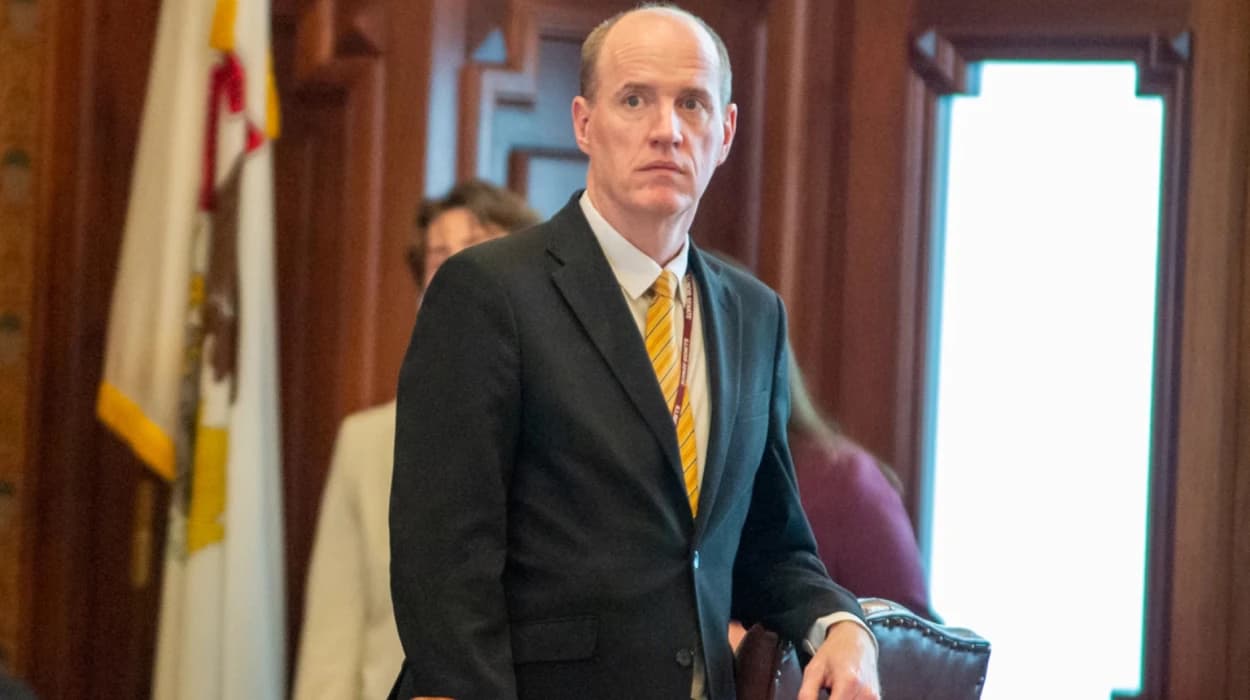Summary
- Sen. Bill Cunningham, Chicago Democrat, to retire at the end of term.
- Known for leadership on energy and climate legislation.
- Represented Illinois State Senate District 18 since 2013.
- Served as Senate President Pro Tempore for 2023-2024.
Cunningham's list of things to do before departing in January 2027 is lengthy. Leading potentially major legislation that might alter the state's energy sector is close to the top of that list.
Cunningham is one of the most influential legislators in Springfield, having joined the General Assembly in 2011. He joined Majority Leader Kimberly Lightford as Senate President Don Harmon's top lieutenants and has been Senate President pro tempore since 2020.
Additionally, he serves as the Democratic co-chair of the Joint Committee on Administrative Rules, a powerful oversight body that is bipartisan and examines the practices of state agencies.
The legislator from the Southwest Side announced his resignation in order to spend more time with his family.
“The political arena has changed during my time in it,”
Cunningham said.
“It’s more combative and more cynical and I know that has driven some people out of it, but for me, it’s more of a personal decision. Those factors really didn’t play in my decision.”
Harmon, D-Oak Park, said Cunningham has been a “steady, patient, pragmatic voice” in Springfield.
Advocates who have worked with Cunningham echoed the sentiment, with several saying that absence will create a “void” in Springfield with no clear replacement to fill that gap.
“Senator Cunningham was a real thoughtful convener of the various — and numerous — stakeholders involved in energy policy in the state,”
Kady McFadden, a longtime environmental advocate, said.
“He is the type of senator and leader who goes deep. I can send him a 10-page document about some energy issue and he’s gonna read the whole thing.”
Cunningham's reputation also extends to organizations that are not as closely associated with the politics of the Democratic Party.
Energy utility Ameren Illinois's chief of government relations, Brian Leonard, stated that he will miss Cunningham's "thoughtful leadership on complex energy issues."
Cunningham was commended for his "calm demeanor even on chaotic days and his ability to focus quickly on the topic at hand" by Mark Denzler, the head of the Illinois Manufacturers' Association and a prominent member of the Springfield business lobby.
Additionally, according to Denzler, Cunningham has been instrumental in data center, workers' compensation, and unemployment insurance legislation.
“I think there will be an energy bill during veto session, during the second week,”
Jen Walling, the head of the Illinois Environmental Council, said.
During the veto session, House Speaker Emanuel "Chris" Welch, D-Hillside, stated at a suburban event this week that he believes "we're going to be able to get something done" on energy.
However, other people are worried that the law would stall once more or fail to pass. Labor standards continue to be a point of contention between renewable companies and the unions that construct renewable projects.
Labor unions opposed the law, which is substantially similar to the present draft version, for these and other reasons.
Business organizations were also worried at the end of the spring session that the legislature was giving regulators too much authority, and the most recent draft hasn't addressed this issue either.
How will his energy and climate bills be handled next term?
During his time in office, Cunningham has been one of the largest sponsors and supporters of climate and energy legislation in Illinois with a particular emphasis on transitioning to clean energy, renewable investments, and reducing greenhouse gas (GHG) emissions.
Now that he is retiring from the Senate, leadership and committee responsibilities related to energy and climate will likely fall to many of the more senior members of the Illinois Senate Democratic caucus who are also interested in, or have expertise in energy and climate.
Several of Cunningham's pending bills and initiatives will be taken up by fellow senate colleagues who may sponsor companion bills or carry forth the legislative agenda during the next session of 2027-2028.

